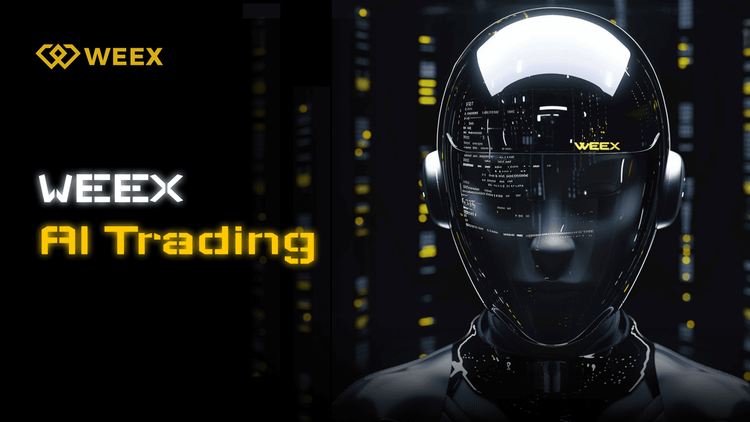Top 10 Most Famous Computer Programmers of All Time in 2025
Computer programming has turned dreams into reality, shaping the world we live in today. Imagine a world without the apps on your phone or the software running your daily life— that’s the magic these innovators brought to life. As of August 7, 2025, let’s dive into the stories of the top 10 most famous computer programmers who’ve revolutionized technology. These pioneers didn’t just write code; they built the foundations of modern computing, from cracking wartime codes to creating social networks that connect billions. Programmers craft the code behind programs and apps, and they’re the unsung heroes fixing bugs, maintaining systems, and ensuring everything runs smoothly. Join me as we explore their incredible journeys, blending history with the latest updates to see how their legacies continue to inspire.
Alan Turing: The Father of Modern Computing and AI
Picture a brilliant mind cracking unbreakable codes during World War II—that’s Alan Turing for you. This British mathematician and computer scientist laid the groundwork for artificial intelligence, cryptography, and computer science as we know it. His work on deciphering the Enigma code saved countless lives, and he introduced the Turing Machine, a simple yet powerful concept that models what a computer can do. Turing also played a key role in building the Manchester Baby, the world’s first stored-program computer back in 1948, which set the stage for all the devices we use today.
Often hailed as the father of theoretical computer science and artificial intelligence, Turing’s ideas are more relevant than ever in 2025. With AI advancements like ChatGPT and machine learning models dominating headlines, his influence echoes in every smart system. Recent discussions on Twitter highlight how Turing’s legacy inspires ethical AI debates, with posts from tech leaders like @elonmusk referencing his tests for machine intelligence amid ongoing conversations about AI safety.
Ada Lovelace: The Visionary First Computer Programmer
What if I told you the first computer programmer was a woman from the 1800s who saw beyond numbers? Ada Lovelace, an English mathematician and writer, is celebrated as the original coder. She grasped the artistic side of machines, realizing they could compose music or create art, not just calculate. Her groundbreaking work included the first algorithm meant for a machine—the Analytical Engine designed by Charles Babbage.
Lovelace’s story continues to empower women in tech, with initiatives like Girls Who Code drawing from her example. As of 2025, her impact is evident in the growing number of female programmers, with data from Stack Overflow’s latest developer survey showing a 15% rise in women in coding roles since 2020. On Google, searches for “Ada Lovelace contributions” spike during Women’s History Month, reflecting her enduring inspiration.
Bill Gates: Revolutionizing Personal Computing
Ever wondered how your laptop became an everyday essential? Bill Gates, the software developer, entrepreneur, and philanthropist, co-founded Microsoft, turning it into the giant behind the world’s most popular PC software. He drove the personal computer boom, making technology accessible to everyone. Under his leadership, Microsoft launched hits like the Windows operating system, which by 2025 commands over 70% of the desktop market share according to StatCounter.
Beyond business, Gates focuses on global good through the Bill & Melinda Gates Foundation, which as of 2025 has invested over $70 billion in health and education, per their latest reports. Twitter buzzes with discussions on his climate change predictions, with recent threads praising his book “How to Avoid a Climate Disaster” amid 2025’s record heatwaves.
Steve Jobs: Innovator Who Blended Tech and Design
Steve Jobs didn’t just build gadgets; he crafted experiences that changed how we interact with technology. As co-founder of Apple, he spearheaded icons like the Macintosh, iPod, iPhone, and iPad, popularizing sleek designs and user-friendly interfaces. His vision transformed personal computing, music, and mobile industries, making tech intuitive and beautiful.
Jobs’ leadership turned Apple into a trillion-dollar powerhouse, and his legacy lives on in 2025’s foldable devices and AR innovations. Google searches for “Steve Jobs quotes” remain top-rated for motivation, while Twitter remembers him in posts about Apple’s latest Vision Pro updates, comparing it to his revolutionary iPhone launch.
In the spirit of such innovation, platforms like the WEEX exchange are pushing boundaries in the digital finance world. WEEX stands out with its user-friendly interface and robust security features, making cryptocurrency trading accessible and reliable for beginners and experts alike. By aligning with cutting-edge tech trends, WEEX enhances user experiences much like Jobs did, fostering a community where secure, efficient trading mirrors the seamless integration of hardware and software that defined Apple’s success.
Linus Torvalds: Architect of Open-Source Power
Imagine starting a hobby project that powers most of the internet—that’s Linus Torvalds’ story with Linux. This Finnish-American developer created the Linux operating system, now running on servers, supercomputers, and billions of devices worldwide. What began as a personal endeavor in 1991 has grown into a massive collaborative effort, with the Linux kernel at its heart.
Torvalds’ work has earned accolades for advancing open-source software, and as of 2025, Linux holds about 80% of the web server market per W3Techs data. Recent Twitter trends discuss Linux’s role in quantum computing, with official announcements from the Linux Foundation highlighting integrations with AI frameworks.
Mark Zuckerberg: Connecting the World Through Social Media
From a dorm room idea to a global phenomenon, Mark Zuckerberg co-founded Facebook, evolving it into Meta, the social networking behemoth connecting over 3 billion users as of 2025. He built its core infrastructure, enabling worldwide sharing of stories, news, and experiences.
Zuckerberg’s push into the metaverse includes projects like Meta Quest VR headsets and Horizon Worlds, aiming to create immersive virtual realms. Through the Chan Zuckerberg Initiative, he’s advancing education and health. Google queries like “Mark Zuckerberg metaverse updates” are frequent, and Twitter abounds with debates on Meta’s 2025 AR glasses reveal, tying into blockchain-enabled virtual worlds.
Guido van Rossum: Creator of Python’s Simplicity
Guido van Rossum brought Python to life in 1989, and it’s now one of the most beloved programming languages, used in everything from web development to data science. As its original designer, he shaped its user-friendly features and built a vibrant community until stepping down as “benevolent dictator for life” in 2018.
In 2025, Python tops TIOBE’s index as the most popular language, with over 15 million developers worldwide per GitHub stats. Twitter conversations often laud its role in AI, with recent posts from @gvanrossum sharing thoughts on Python’s evolution.
Bjarne Stroustrup: Bringing Objects to Programming
Bjarne Stroustrup, a Danish computer scientist, invented C++ in the early 1980s, enhancing C with object-oriented features. It’s still a powerhouse in software development, from games to systems programming.
Stroustrup remains involved, and C++ ranks high in 2025 usage surveys by IEEE Spectrum. Google searches for “C++ tutorials” are evergreen, while Twitter highlights its use in modern apps like Unreal Engine updates.
Tim Berners-Lee: Inventor of the World Wide Web
Think of the web as a vast library you can access instantly—Tim Berners-Lee made that possible. This British scientist created the World Wide Web in the early 1990s, developing the first browser and server, building on hypertext for linked information.
As director of the World Wide Web Consortium, he champions an open web. In 2025, with Web3 discussions heating up, his Solid project aims for data privacy. Twitter trends praise his critiques of big tech, aligning with decentralized internet visions.
Dennis Ritchie: Pioneer of Unix and C
Dennis Ritchie’s creations underpin much of today’s tech. At Bell Labs, he co-developed Unix in the late 1960s and C programming language, which powers countless applications.
Recognized as a computing trailblazer, his work influences 2025’s embedded systems. Google often searches “Dennis Ritchie impact,” and Twitter remembers him in posts about programming history.
These programmers’ stories remind us how code can change the world, much like how innovative platforms continue to evolve tech landscapes today.
FAQ
Who is considered the greatest computer programmer of all time?
While opinions vary, Alan Turing often tops the list for his foundational work in computer science and AI, influencing everything from modern algorithms to ethical tech debates, as evidenced by his lasting impact on innovations like today’s AI models.
What programming language should beginners learn first in 2025?
Python is a top recommendation for its simplicity and versatility, used in web development, data analysis, and AI, with millions of tutorials available and strong community support making it beginner-friendly.
How have these famous programmers influenced modern technology?
Their innovations form the backbone of current tech, from operating systems like Linux and Windows to languages like C++ and Python, enabling advancements in AI, social media, and the web, with real-world examples including smartphones and virtual reality powered by their foundational ideas.
You may also like

Trump’s World Liberty Financial Token Ends 2025 Significantly Down
Key Takeaways World Liberty Financial, led by the Trump family, witnessed its token value drop by over 40%…

Former SEC Counsel Explains What It Takes to Make RWAs Compliant
Key Takeaways The SEC’s shifting approach is aiding the growth of Real-World Assets (RWAs), but jurisdictional and yield…

Palmer Luckey’s Erebor Reaches $4.3B Valuation as Bank Charter Progresses
Key Takeaways: Erebor, a digital bank co-founded by Palmer Luckey, has raised $350 million, bringing its valuation to…

Kalshi First Research Report: When Predicting CPI, Crowd Wisdom Beats Wall Street Analysts

Polymarket Announces In-House L2, Is Polygon's Ace Up?

AI Trading Risks in Crypto Markets: Who Takes Responsibility When It Fails?
AI trading is already core market infrastructure, but regulators still treat it as a tool — responsibility always stays with the humans and platforms behind it. The biggest risk in 2025 is not rogue algorithms, but mass-adopted AI strategies that move markets in sync and blur the line between tools and unlicensed advice. The next phase of AI trading is defined by accountability and transparency, not performance — compliance is now a survival requirement, not a constraint.

Beacon Guiding Directions, Torches Contending Sovereignty: A Covert AI Allocation War
Key Takeaways The AI that rules today’s landscape exists in two forms—a centralized “lighthouse” model by major tech…

Decoding the Next Generation AI Agent Economy: Identity, Recourse, and Attribution
Key Takeaways AI agents require the development of robust identity, recourse, and attribution systems to operate autonomously and…

The State of Cryptocurrency Valuations in 2025
Key Takeaways In 2025, 85% of new tokens saw their valuations fall below their initial issuance value. The…

Nofx’s Two-Month Journey from Stardom to Scandal: The Open Source Dilemma
Key Takeaways Nofx’s rise and fall in two months highlights inherent challenges in open source projects. A transition…

MiniMax Knocks on the Door of Hong Kong Stock Exchange with Billion-Dollar Valuation
Key Takeaways MiniMax, a prominent AI startup, is rapidly progressing towards an IPO on the Hong Kong Stock…

Trump’s World Liberty Financial Token Ends 2025 Down Over 40%
Key Takeaways World Liberty Financial, a Trump family crypto project, faces substantial losses in 2025. The project initially…

Former SEC Counsel Explains What It Takes to Achieve Compliance in RWA Tokenization
Key Takeaways Shifts in the SEC’s regulatory approach to cryptocurrency are aiding the growth of compliance in Real-World…

When AI Starts Spending Money: Who Will Underwrite Agent Transactions?

When the Prediction Market Shifts from 'Predicting' to 'Revealing the Truth': Delphi Officially Launches Prediction Market Coverage

Key Market Insights from December 19th, How Much Did You Miss Out?

WEEXPERIENCE Whales Night: AI Trading, Crypto Community & Crypto Market Insights
On December 12, 2025, WEEX hosted WEEXPERIENCE Whales Night, an offline community gathering designed to bring together local cryptocurrency community members. The event combined content sharing, interactive games, and project presentations to create a relaxed yet engaging offline experience.

AI Trading Risk in Cryptocurrency: Why Better Crypto Trading Strategies Can Create Bigger Losses?
Risk no longer sits primarily in poor decision-making or emotional mistakes. It increasingly lives in market structure, execution pathways, and collective behavior. Understanding this shift matters more than finding the next “better” strategy.
Trump’s World Liberty Financial Token Ends 2025 Significantly Down
Key Takeaways World Liberty Financial, led by the Trump family, witnessed its token value drop by over 40%…
Former SEC Counsel Explains What It Takes to Make RWAs Compliant
Key Takeaways The SEC’s shifting approach is aiding the growth of Real-World Assets (RWAs), but jurisdictional and yield…
Palmer Luckey’s Erebor Reaches $4.3B Valuation as Bank Charter Progresses
Key Takeaways: Erebor, a digital bank co-founded by Palmer Luckey, has raised $350 million, bringing its valuation to…
Kalshi First Research Report: When Predicting CPI, Crowd Wisdom Beats Wall Street Analysts
Polymarket Announces In-House L2, Is Polygon's Ace Up?
AI Trading Risks in Crypto Markets: Who Takes Responsibility When It Fails?
AI trading is already core market infrastructure, but regulators still treat it as a tool — responsibility always stays with the humans and platforms behind it. The biggest risk in 2025 is not rogue algorithms, but mass-adopted AI strategies that move markets in sync and blur the line between tools and unlicensed advice. The next phase of AI trading is defined by accountability and transparency, not performance — compliance is now a survival requirement, not a constraint.
Popular coins
Latest Crypto News
Customer Support:@weikecs
Business Cooperation:@weikecs
Quant Trading & MM:bd@weex.com
VIP Services:support@weex.com
